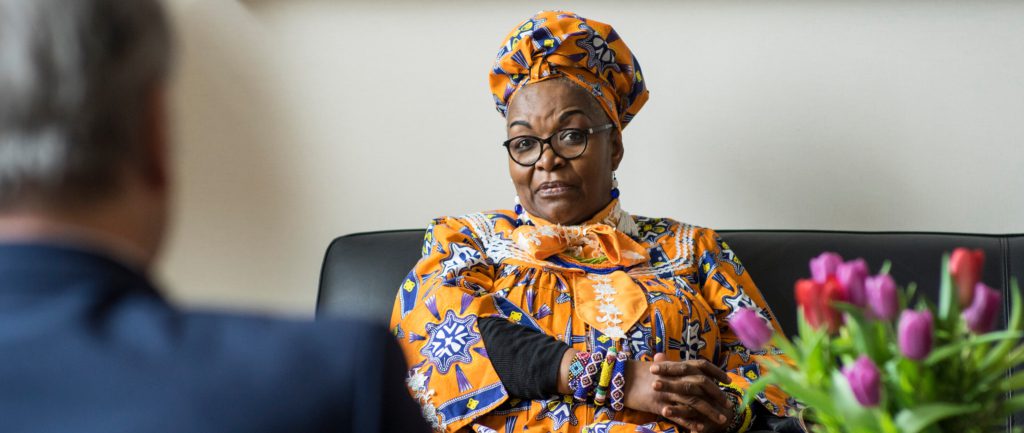In response to the summons of the Cameroonian lawyer and chairperson of the Network of Human Rights Defenders in Central Africa (Réseau des défenseurs des droits humains en Afrique Centrale – Redhac) on 10 January, before the Governor of Uri and the Parliament, on 14 January, Amnesty International Marceau Sivieude, Interim Regional Director for West and Central Africa, said:
“The ban and arbitrary three-month suspension of the activities of Redhac and three other civil society organizations violates the country’s international human rights obligations to ensure everyone’s rights to freedom of expression and association.
The authorities must immediately stop abusing the justice system to target Alice Nkom.
Marceau Sivieude, Interim Regional Director, Amnesty International
west and central africa
“Furthermore, weaponizing the justice system to intimidate human rights defender Alice Nkom demonstrates the authorities’ blatant disregard for the human rights of those who defend the rights of others.
“The Cameroonian authorities must end the suspension of the affected organizations, reinstate their status and allow them to carry out their activities without arbitrary interference. They must also immediately stop abusing the justice system against Alice Nkom and other human rights defenders writers and activists.
background
In March 2020, the Minister of Territorial Administration accused Redhak and several other civil society organizations of “being involved in a conspiracy against Cameroon and the defense and security forces”.
On December 6, 2024, the same minister suspended four organizations, including Redhac, citing “illegal and excessive funding inconsistent with the profile of activities”, “lack of authorization”, “activities that may undermine the financial integrity of the country” .
Alice Nkom was first summoned by the governor of Uri on December 10 when she broke the seal on the door of her office building in Redhac. She did not appear at this or the second summons, asking for a postponement until January to ensure her lawyers could attend.
On December 31, she was summoned for “investigation” by the head of the Central Judicial Investigation Department of the National Gendarmerie. Previously, a Cameroonian NGO submitted a report to the Douala military court on December 18, accusing her of raising funds to oppose the current authorities and supporting armed groups in the English-speaking region.
In its concluding observations on Cameroon, issued in December 2024, the United Nations Committee against Torture expressed concern over “the intimidation, threats, harassment, excessive use of force, arbitrary use of force, and arbitrary use of human rights defenders, members of civil society, journalists, political opponents and peaceful protesters.” Arrests and detentions, prosecutions, including by military courts, torture and ill-treatment, enforced disappearances and extrajudicial executions.”


